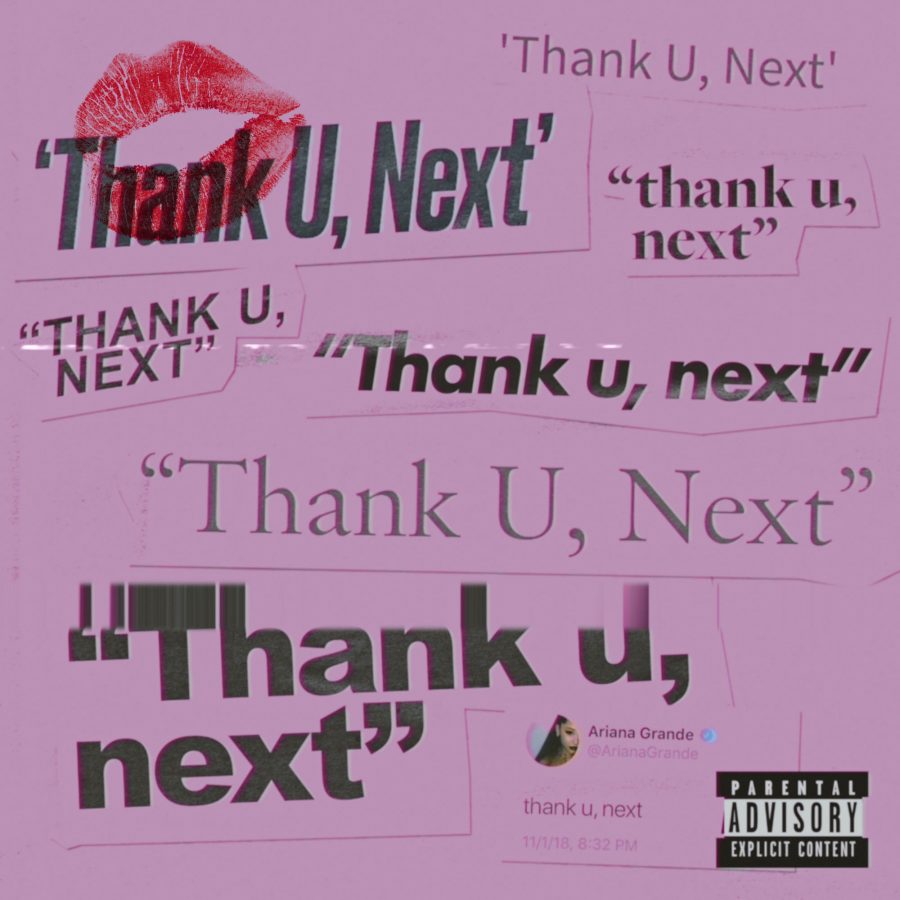Ariana Grande is one of the most electric, attention-grabbing women in the music industry today.
Previously a Nickelodeon child star, she has grown up to be a 25-year-old musician with vocals comparable to Mariah Carey and Alicia Keys.
Grande has noticeably risen in popularity and relevance within pop culture during the last couple of years; her most recent hits come from her newest album “Thank U, Next,” released in February of 2019.
“God is a Woman,” “Thank u, next,” “7 rings” and “Break up with your girlfriend, i’m bored,” are some of her most popular songs at the moment. However the independent, feminist twang of her hits simultaneously preaches one message while contradicting the message of another song.
“Thank u, next” is popular and admired because it preaches self-love, triumphant self-reflection and growth in the backlash of difficult breakups.
In the song, Grande recounts all of her major ex-boyfriends, sharing why things didn’t last, and why she is overjoyed that they did not.
She concludes that she is better off alone, but is still thankful to have had these relationships because they all taught her something about love, and how Grande can better love herself.
The songs lyrics elevate the true love story of Grande’s life: the relationship she has with herself which is always constant, while her past and future boyfriends are not as steadfast. “She taught me love, she taught me patience, how she handles pain, that sh*t’s amazing, I’ve loved and I’ve lost, but that’s not what I see, cause look what I’ve found, ain’t no need for searching.”
“Thank u, next” is a powerful example of the positive prosperity that a breakup can have when it is framed without resentment and bitter feelings; for this, I commend Grande.
However, this powerful message stands in stark contrast to her song “Break up with your girlfriend, i’m bored.” The lyrics that are included in this song are just as insensitive and shallow as the title sounds.
The song is purposely theatrical, but its overarching message sets a tone that glorifies shady relational transactions with a main sexual motivation. The lyrics of the song follow the catchy title saying, “breakup with your girlfriend cause I’m bored; you can hit it in the morning like it’s yours. I know it ain’t right but I don’t care.”
Thanking her exes for lessons learned and experience gained is worthy of applause.
But singing along to the same artist that simultaneously preaches backhanded breakups driven merely by sexual desire takes away a large quantity of her credibility as a respectable artist that incorporates ethics into her music and, presumably, her lifestyle.
Most artists in pop culture and the music industry show a lack of moral or ethical behavior, yet I still expected a greater sense of responsibility and sensitivity from an artist like Grande who makes an effort to champion other women, but who yet undermines herself.
In “Breakup,” Grande paradoxically endorses tearing other women down and convincing their boyfriends to leave them just because of her own desire for male companionship. Relationships should not be cast out so quickly or talked about in such frames that strip it bare of all meaning and importance and leave it as purely transactional and disposable.
Even if Grande didn’t write this song herself, she still promotes it, sings it, makes money off of it, and shapes culture as we know it.
All the negative, sexual greed of “Breakup” takes away from songs like “thank u, next” that actually encourage individuals to love themselves and turn breakups into experiences that can be healed and eventually grown from.
Music on the radio needs more positive content, music that encourages others and promotes self-worth. We do not need artists, who already have influence on the public, introducing toxic norms and standards to children and young people alike.
Music is a platform to inspire change for the benefit of society and should not be abused as stage for continuation of past (and present) wrongs.
Musicians and artists should be creators of cultural values that honor other human beings, and use their influence for a higher purpose, instead of one that only appeals to catchy tunes at the expense of degradation of others.

















































































